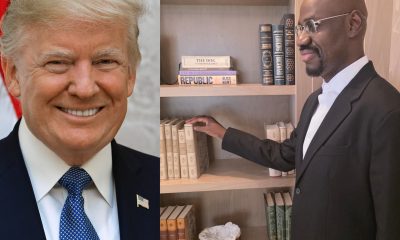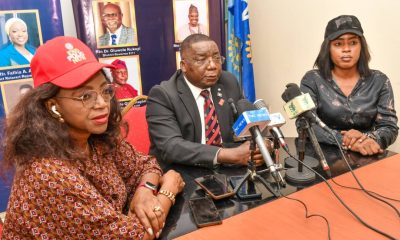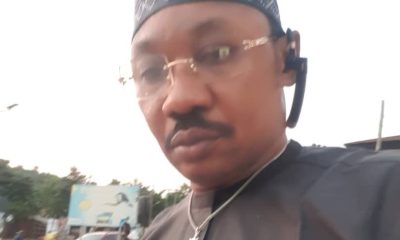News
National Assembly blasts Minister over alleged ‘Ghost Projects’ in Ministry of Steel Development
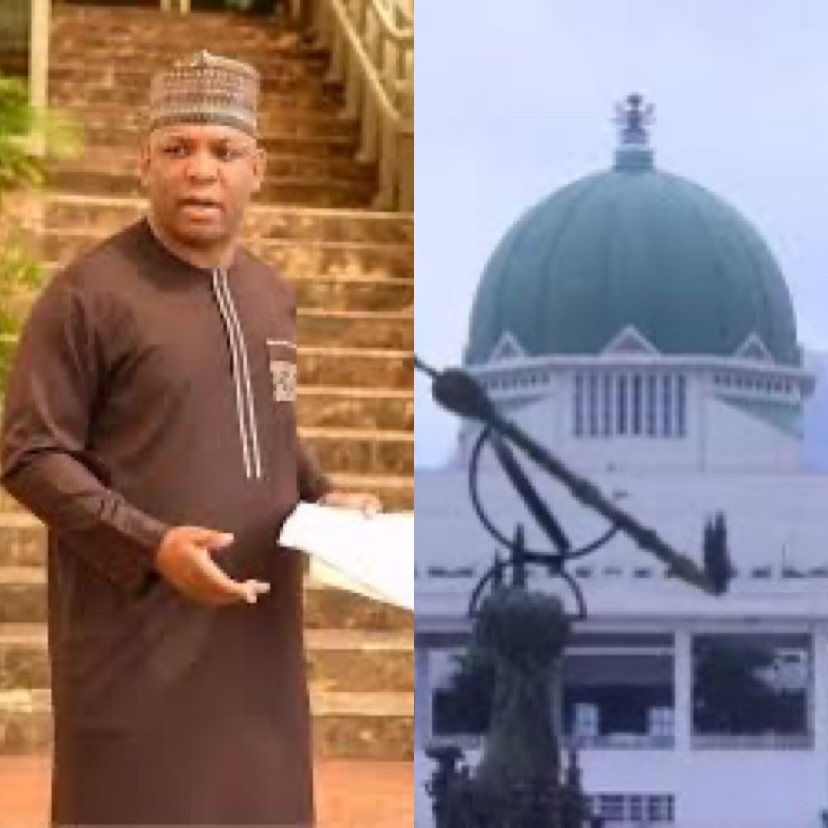
By Adeko Ukpa
The joint National Assembly Committee on Steel Development has decried what it described as “ghost projects” allegedly meant to divert public funds in the 2024 budget appraisal submitted to it by the Ministry of Steel Development.
The Co-Chairman of the Committee, Hon. Zainab Gimba, gave this indication when the Minister of Steel Development, Prince Shuaibu Audu, appeared before the Committee to defend the ministry’s 2025 budget proposal on Friday.
Gimba said: “A first-hand appraisal of the 2024 submissions shows some Budget Infractions as funds allocated for unspecified “capacity-building programmes” and “skills training initiatives” in the steel sector show no evidence of execution or impact.
“These projects risk being classified as ghost projects designed to divert public funds.
“Administrative and recurrent costs significantly increased in 2024 without proportional increases in ministry’s activities or outputs, a possible indicator of mismanagement or misallocation of funds.
“Also, we identified some legal Infractions such as violations of the Fiscal Responsibility Act.
“The act mandates efficient use of public resources and accountability for project outcomes.
“Several projects, especially related to Ajaokuta Steel, failed to meet these criteria.”
She identified non-adherence to the Public Procurement Act, saying there were alleged instances of non-competitive bidding and inflated contract costs which suggested violations of procurement guidelines.
She also identified breach of financial regulations by stressing that there were unaccounted funds.
Gimba said, “There are ghost projects which are a direct violations of Nigeria’s Financial Regulations, which require all expenditures to be backed by documentation and outcomes.
“We advise you to make all necessary submissions on these to the committee secretariat.
“On this note, we recommend conducting a Forensic Audit. There should be engagement of independent auditors to scrutinize expenditures and contracts for 2024.
“We will strengthen oversight in 2025 because, looking at the Ministry of Steel Development’s 2025 Executive Budget, we see a high proportion of personnel costs put at 57.2 per cent.
“This suggests that most of the funding is spent on salaries rather than developmental projects, which raises concerns about operational efficiency.
“Capital expenditure, which is 34.6 per cent, is inadequate for a sector like steel development, which requires heavy infrastructure, technology, and modernisation investments to drive industrial growth.
“There is no detailed breakdown to show the strategic focus of these expenditures (e.g., feasibility studies, stakeholder engagement, and modernization.
“In summary, the Ministry of Steel Development’s 2025 Budget, reflects a commitment to maintaining operations but falls short of delivering the necessary capital investments to transform the steel industry into a viable driver of Nigeria’s industrialization.
“Significant reforms in funding priorities, operational efficiency, and revenue generation are required to align with the ministry’s strategic objectives.
“l will not fail to express the displeasure of our Committee in the way the Ministry has continued to ensure a complete breakdown of communication between us within the period under review.
“It is equally disappointing and unfortunate to recollect how the agencies under the Ministry failed to provide enough information to the Committee during their budget defence.
‘We will not leave any stone unturned in the discharge of our legislative duties.
“It is a fact that if the legislature does not rigorously examine and debate the law, its powers will be seen as not being effectively exercised, and the government’s accountability to the electorate for its fiscal strategy and strategic budget allocation will be undermined.
“We want to state unequivocally that we will never allow such affronts or practices to happen again because we would not hesitate to apply the hammer according to the powers statutorily vested on our Committee,” Gimba said.
In his contribution, the Chairman of the joint panel, Senator Patrick Ndubueze, said his members were out to do their legislative duties.
He said, “Our concern is to take Nigeria where it rightfully should be in steel development.
“Nigeria can’t make much progress without a solid steel industry. We have to place emphasis on capital projects, not payment of salaries.
“For us to do well, we can’t be repeating the same mistakes every time. We expected that the ministry would have improved by now.”
Members of the panel raised concerns over the move by the Federal Government to conduct a fresh technical audit on the Ajaokuta Steel Company when the government had yet to act on three previous audit reports on the plant.
In his response, Audu defended the ministry, saying the government is still trying to source over $2billion to revamp the firm.
According to him, the Federal Government had in October last year, signed a Memorandum of Understanding (MoU) with Russia for the completion of the plant and the National Iron Ore Mining Company (NIOMCO), both located in Kogi State.
He said the tripartite MoU was signed in Moscow with Messrs, Tyazhpromexport (TPE), the Russian firm that originally built the Ajaokuta steel plant and partners of the consortium, Novostal M and Proforce Manufacturing Limited.
Audu said the consortium, in collaboration with Nigerian engineers, will conduct the fresh technical audit and the report would be submitted to the Federal Executive Council (FEC) for approval before work on the plant will begin fully.
Audu said, “$2bn, about N3.7trillion, is required to revamp Ajaokuta steel. The ministry does not have the money. Our budget for 2024 was just N24billion, a far cry from that amount. So, we are sourcing for partners.
“We are in the process of conducting an (technical) audit of the entire firm for submission to FEC for approval.”
However, his submission elicited questions from lawmakers, who particularly doubted the relevance of a fresh technical audit when the government could simply dust up any of the three previous audit reports and act on it.
A member of the Committee, Senator Natasha Akpoti-Uduaghan asked, “You haven’t conducted the technical audit, yet you have already arrived at a cost of $2billion. How did you get the figure before completing the audit?
“We have three existing reports on previous audits carried out on Ajaokuta Steel. Why can’t we implement the existing reports? Why do we always sign new ones?”
In his reply, the minister said the existing audits date back 10 years ago and were done by other companies, not the Russians.
“The reports will have to be bankable; we are involved with new partners, separate from those who worked on the existing reports.
“The previous audits are about 10 years old. But, we will build on them to come up with what is tenable with present realities”, Audu said.
He reassured the members of the joint committee that the government had faith in the Russians to be equipped enough to play a pivotal role in the efforts to complete the plant.
He also promised that the ministry would address all the concerns raised by the joint committee on the performance of its 2024 budget and the projections for 2025.
News
Timi Frank Weeps for ‘Adamawa Nine’, Demands Justice for Victims
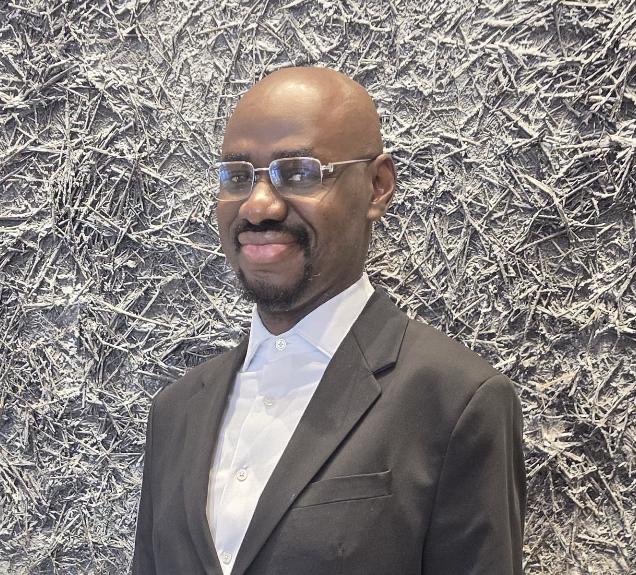
From Adeko Ukpa
Former Deputy National Publicity Secretary of the All Progressives Congress (APC), Comrade Timi Frank, has condemned in strong terms the recent killing of nine protesting women in Adamawa state by military operatives.
Soldiers had allegedly opened fire on protesting women in the Lamurde Local Government Area of Adamawa State on Monday.
Also, 51 others were said to have been hospitalised where most of them are still receiving treatment for varying degrees of gunshot wounds, many of them life-threatening.
Frank in a statement in Abuja described the killing of the nine women as “senseless, unforgivable, inhuman and avoidable.”
He noted that the victims – ordinary women, mothers and breadwinners who had stepped out only to protest the insecurity consuming their communities – were met with lethal force when all they sought was protection for their children. “Their only offence was demanding safety,” he lamented.
The incident, which has triggered widespread outrage, adds to what Frank called a mounting record of state violence and military impunity in Nigeria and across Africa.
He cited troubling statistics indicating that over 10,000 Nigerian youths have been killed or disappeared in recent years through military operations and extrajudicial actions.
“This culture of violence and unaccountability must end,” he declared, his voice breaking with emotion.
Frank rejected what he described as the government’s habit of announcing panels of inquiry that ultimately serve as “political theatre” designed to bury justice.
From the #EndSARS killings at Lekki Toll Gate to crackdowns in Cameroon, Tanzania, Kenya, Uganda and Zimbabwe, he said, those who issue shoot-to-kill orders have repeatedly escaped responsibility. “This time, we will not accept delays, excuses or another meaningless probe,” he vowed.
The ULMWP Ambassador to East Africa and the Middle East issued a set of demands he said must be met urgently.
He called for the arrest and prosecution of military officers – both those on the ground and their commanders – who played any role in what he described as the “barbaric” slaughter of the Yola Nine.
He insisted that the federal and state governments owe full compensation to the bereaved families, including scholarships for the victims’ children and long-term welfare plans to prevent the tragedy from plunging entire households into destitution. “These women must not die in vain,” he said.
Given what he termed the consistent failure of Nigeria’s justice system to punish human rights violations, Frank urged the International Criminal Court (ICC) to open investigations into military abuses in Nigeria and across Africa.
Frank who also serves as the Senior Advisor to the Global Friendship City Association (GFCA), USA, further demanded sanctions, travel bans and international prosecutions for military leaders who authorise or enable the killing of unarmed civilians.
Frank also called on the global community—human rights organisations, civil society groups, women’s coalitions and all citizens—to amplify their voices for the Yola Nine. In a direct appeal, he urged President Donald Trump and the U.S. government to speak out, demand accountability, and support international action.
“The U.S. has shown willingness to stand with oppressed African citizens. We appeal for that moral leadership now,” he stated.
He said the tragedy is more than a national wound; it is “a stain on Africa’s conscience” and a test of whether governments will continue to allow soldiers, whose duty is to protect, to open fire on peaceful citizens without consequence.
“The killing of the Yola Nine is a tragedy Nigeria must not brush aside,” he said. “Justice must be non-negotiable. Accountability must be immediate. And this barbarism must never happen again.”
News
Timi Frank Slams FG, Hails U.S. Over Terror-Financier Sanctions
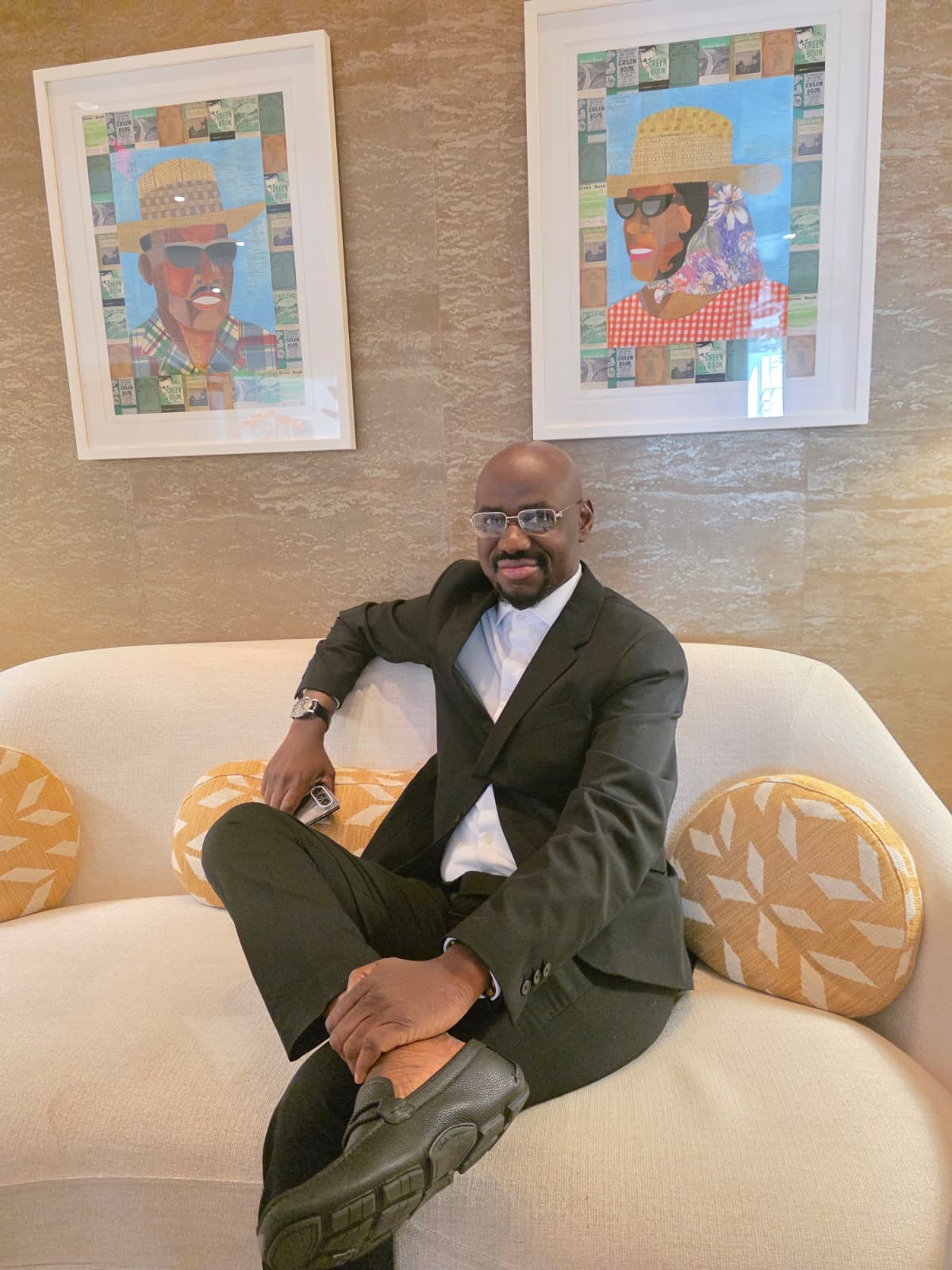
From Adeko Ukpa
Political activist and former Deputy National Publicity Secretary of the All Progressives Congress (APC), Comrade Timi Frank, on Friday criticised the Nigerian government for allegedly shielding terrorism financiers while insecurity continues to ravage the country.
Frank said recent steps taken by U.S. President Donald J. Trump and members of the U.S. Congress have “embarrassed and compelled” Nigerian authorities into taking actions they should have initiated long ago.
In a statement, Frank, who also serves as the United Liberation Movement for West Papua (ULMWP) Ambassador to East Africa and the Middle East, expressed appreciation to the U.S. government for what he described as its “genuine concern” for the security of Nigerians.
“I wish to thank President Trump and the good people of the United States who have shown sympathy and support for Nigerians at a time when terrorists and bandits threaten to overrun our nation,” he said.
He also commended U.S. Secretary Marco Rubio for imposing visa restrictions on individuals suspected of sponsoring terrorism, describing it as evidence that America is “more committed to ending insecurity in Nigeria than our own leaders.”
According to Frank, the visa ban announced by Rubio represents “the first serious international move that has forced Nigeria’s government to even pretend to act.”
“Let it be clearly stated: if President Trump had not stepped in, Nigeria’s leaders would still be looking the other way,” he added.
“The U.S. has shown more will, more commitment, and more empathy toward Nigerians than the very government elected to serve and protect them.”
Frank accused the Nigerian government of refusing to release the full list of terror financiers earlier exposed by the United Arab Emirates (UAE), insisting that two successive administrations had withheld the names for political reasons.
“The UAE provided the list during the Buhari administration,” he claimed. “Till today the names have not been released because many of those sponsoring terrorism are politically connected. Some are members of the ruling party. That is the truth they do not want Nigerians to know.”
He argued that corruption and political protection have weakened the fight against terrorism, despite the capacity of the Nigerian state to curb the violence.
“The Nigerian government is not helpless. It is simply compromised. And that is why terrorists and bandits have become emboldened enough to threaten the very soul of our country,” he said.
Frank further stated that the U.S. government’s intervention reflects a level of concern and urgency that Nigeria’s leadership has failed to demonstrate.
“The U.S. has no obligation to spend its taxpayers’ money to protect Nigerians, yet President Trump and members of Congress have shown more outrage over the kidnappings, genocide and mass killings than our own government, which continues to act with disturbing indifference,” he said.
He urged Washington not to share any intelligence with Nigerian officials until Abuja releases the full, unedited list of terror financiers as received from the UAE.
“There are terrorist sympathizers within the system. Sharing intelligence with people who may be compromised is dangerous,” he warned. “Until the names are publicly released and prosecuted, no sensitive information should be handed over.”
Frank also criticised the Nigerian government over what he described as misplaced priorities, alleging that while citizens continue to suffer violent attacks, public officials are focused on political spending.
“At a time when Nigerians are being slaughtered daily, the government is busy buying jeeps and cars to prepare for the 2027 elections,” he said. “This shameful display shows exactly where their priorities lie, and it is not with the people.”
Frank, who is also Senior Advisor to the Global Friendship City Association (GFCA), USA, thanked the U.S. Congress—particularly Senator Ted Cruz and Representative Riley Moore—for supporting efforts to address Nigeria’s worsening insecurity.
“On behalf of millions of Nigerians who have lost loved ones, homes and livelihoods, we express profound gratitude to President Trump and the U.S. government,” he said.
“Their intervention has exposed what our own leaders have refused to confront and has given Nigerians renewed hope that this nightmare can end.”
Business & Economy
IMEC as a Driver of Industrial Zones in Africa
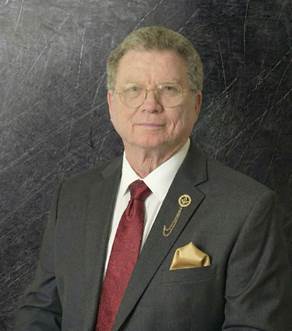
By Samuel Shay
When Samuel Shay speaks about Africa’s industrial future within the India Middle East Europe Corridor, he describes a transformation that is already beginning to take shape. Shay, known for his work across the Middle East and Africa as an economic strategist and a senior advisor to the Abraham Accords framework, argues that IMEC is more than a trade route. It is a structural engine capable of turning Africa into one of the most dynamic manufacturing regions of the coming decades.
In recent months, Shay has travelled through East Africa, the Gulf, and Europe, presenting a unified message. Africa, he insists, can no longer be positioned at the margins of global production. The continent has the people, the geography, and the resources to become a central manufacturing pillar that connects directly into IMEC supply chains. According to him, the opportunity is historic. For the first time, Africa has access to a stable, predictable, and world class logistical network that links its industrial zones to India, Saudi Arabia, the United Arab Emirates, Israel, and Europe.
During a briefing he held with regional partners, Shay outlined the logic behind this shift. Industrial development follows infrastructure, he said. When transport becomes reliable and costs fall, production follows. IMEC shortens routes, reduces risk, and creates new commercial confidence. This opens the door for multinational companies to relocate manufacturing processes to Africa, where the workforce is young, the markets are expanding, and governments are increasingly committed to reform.
Shay points to East African ports such as Mombasa, Lamu, Dar es Salaam, and Djibouti as natural gateways for Africa’s industrial integration. These ports already serve as the continent’s maritime link to the Gulf. Under IMEC, they can evolve into hubs for processed goods and finished products. Africa should not export raw materials anymore, Shay told partners in one of his discussions. It should export value.
In his analysis, three forces converge to support Africa’s rise as a manufacturing center. First is India. With its growing industrial and technological power, India is seeking new production bases that can serve global markets. Africa’s proximity and labor capacity give it a clear advantage. Shay has held several meetings with Indian business leaders who see Africa as a natural partner for joint ventures in automotive components, electronics, textiles, food processing, and pharmaceuticals. They told him that the predictability of IMEC is the missing link. Once this predictability is secured, investment becomes far easier.
Second is the Gulf. Shay maintains long standing working relationships with senior officials in Riyadh and Abu Dhabi. The Gulf states are repositioning themselves as global logistics powers and are investing heavily in renewable energy and industrial diversification. Their capital, combined with Africa’s labor and land, can create a chain of industrial zones linked by IMEC’s transport, digital, and energy routes. Shay often emphasizes that the Gulf is ready to finance large scale industrial clusters in Africa, particularly those connected to green hydrogen, solar components, fertilizers, and agro processing.
Third is North Africa. Countries like Morocco, Egypt, and Tunisia already possess industrial capabilities. Shay believes that connecting these northern hubs with East and West Africa through IMEC linked industrial corridors can create a continental network of production. Egypt, in particular, has the potential to become a dual anchor, serving both African and Mediterranean markets. Shay has been working with Egyptian partners on the concept of Red Sea and Sinai based industrial zones designed specifically for IMEC trade routes.
Training and human development are core to Shay’s vision. Africa’s young population is its greatest asset, he said in a recent conversation. Industrial zones must include professional academies, technological training centers, and partnerships with Indian and Israeli companies capable of delivering advanced skills. Shay argues that without investing in people, infrastructure alone cannot produce growth. But with the right training, Africa can build a generation of industrial workers capable of competing globally.
Digital connectivity is another pillar of Shay’s plan. IMEC will rely on advanced fiber optic networks, and African industrial zones connected to these systems will benefit from real time logistics data, smart manufacturing tools, and transparent digital supply chains. According to Shay, this connectivity is essential. It allows African manufacturers to meet the strict standards of European and Asian markets and to integrate seamlessly into multinational procurement systems.
Shay also stresses the social impact of industrial development. Manufacturing creates stable employment and generates an ecosystem of local service providers. In his discussions with African leaders, he repeatedly highlighted that IMEC oriented industrial zones can strengthen communities by providing long term income, advancing education, and supporting socially inclusive economic growth.
Environmental sustainability is part of the strategy. Africa’s potential in solar and wind energy gives it an advantage in producing low carbon goods. Shay believes that IMEC will amplify this potential by creating pathways for green energy exports and clean manufacturing. He argues that Europe’s environmental regulations will become an opportunity instead of a barrier if African industrial zones adopt renewable energy at scale.
In his overarching vision, Shay sees Africa emerging as a fourth pillar in the global economic network that IMEC is creating. India brings technology and scale. The Gulf brings capital and energy. Europe brings markets and standards. Africa brings population, land, and future growth potential. Together, these regions form a new economic architecture that he believes will define the next era of trade and development.
Samuel Shay’s message is consistent and clear. Africa is not a peripheral market. It is a central participant in the future that IMEC is building. Through industrial zones, education, and strategic partnerships, the continent can claim its place as a manufacturing power connected to India, the Middle East, and Europe. IMEC is not just a corridor for goods. It is a corridor for Africa’s rise.
-
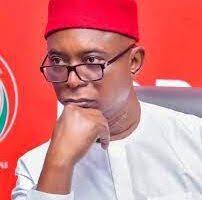
 Opinion9 months ago
Opinion9 months agoAnioma State: A Necessary Proposal Rooted in Strategic Advantage
-
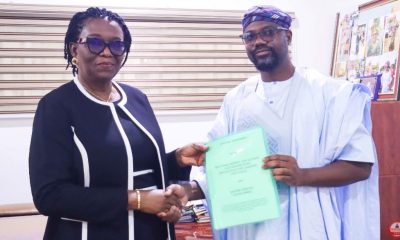
 Business & Economy1 year ago
Business & Economy1 year agoNASENI, Qietur partner to build 3000 Housing Units for Staff
-
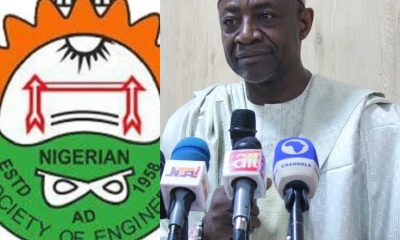
 Business2 months ago
Business2 months agoLithium boom has reshaped Nasarawa’s economy, says Prof Haruna
-
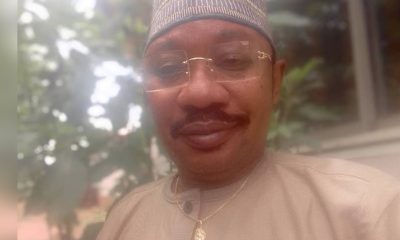
 Law1 year ago
Law1 year agoHuman Right and Law Enforcement in Nigeria: A Critical Analysis
-
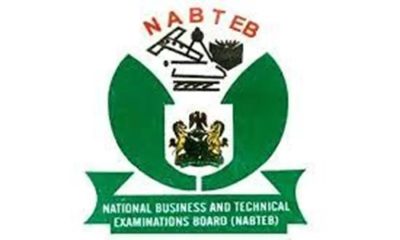
 Education3 months ago
Education3 months agoNABTEB Registrar advises automotive, locomotive Engineers to do more to diversify Nigerian economy
-

 Education6 months ago
Education6 months agoTVET will change Nigeria for good, says NABTEB Registrar
-
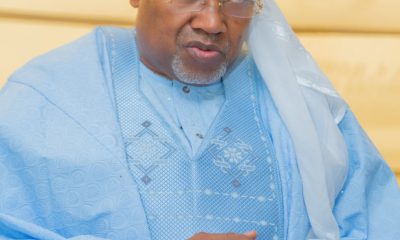
 Opinion3 months ago
Opinion3 months agoEngr. Kawu: A Heroic Homecoming for a Man of the People
-
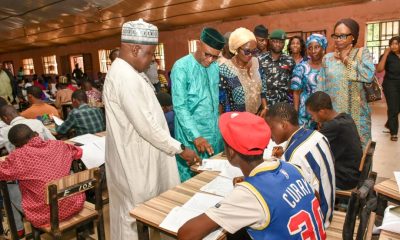
 Education6 months ago
Education6 months agoTVET: FG conducts entrance exam into FTCs for 30,000 students





